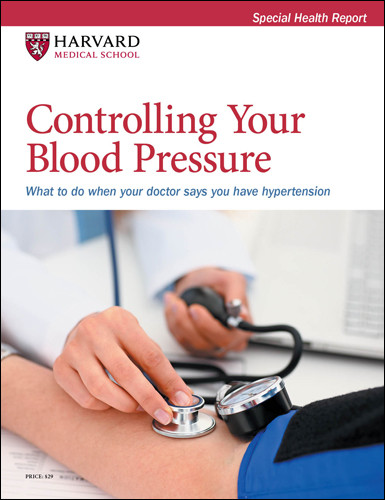A closer look at alcohol's effect on heart health
Could stress relief and a lower risk of diabetes explain the link between moderate drinking and cardiovascular health?
- Reviewed by Christopher P. Cannon, MD, Editor in Chief, Harvard Heart Letter; Editorial Advisory Board Member, Harvard Health Publishing

Along with many major health organizations, the American Heart Association (AHA) warns about the dangers of excessive drinking, which can contribute to high blood pressure, obesity, and stroke. It also discourages people from drinking alcohol to improve their health, although the AHA maintains that moderate drinking (no more than one drink per day for women and two drinks or fewer per day for men) is acceptable.
This complex advice stems from conflicting studies about the health effects of light to moderate alcohol consumption. While some research focusing on inherited factors (see "Using genetics to explore drinking's effects") has hinted that even light drinking may be harmful, other studies have looked for mechanisms through which moderate drinking could benefit the heart.
Limited evidence suggests that alcohol may raise HDL (good) cholesterol levels, boost antioxidant levels, or enhance blood flow. But none of these explanations has proven very convincing. A recent report raised another possibility: reduced stress.
Using genetics to explore drinking's effectsOne well-known problem of observational studies is that they can't prove cause and effect. Light to moderate drinkers tend to be educated and relatively wealthy, which often enables healthy habits and good medical care. Also, people who are ill or taking certain medications are often advised to avoid alcohol. If you compare these abstainers to drinkers, the drinkers appear healthier by comparison, but that's not necessarily due to the alcohol. In an attempt to adjust for these and other confounding factors, researchers have looked at genetic factors that influence alcohol use. But the studies — which found that even small amounts of alcohol might increase heart disease risk — relied on gene variants linked to alcohol use disorder or binge drinking. A predilection to heavy drinking, which has many damaging health effects, isn't necessarily a good way to assess the effects of light to moderate drinking, says Dr. Kenneth Mukamal, professor of medicine at Harvard Medical School. In addition, genetic factors are multifaceted and complex (see "Genetic profiling for heart disease: An update"). |
The stress connection
A study published in the June 20, 2023, Journal of the American College of Cardiology found that brain scans of people who reported light to moderate drinking showed less activity in the part of the brain that responds to stress, compared with the scans of people who abstained or drank very little. Stress not only raises blood pressure and heart rate but also triggers inflammation that causes plaque buildup, which contributes to heart attacks.
The finding is limited by the fact that the brain scans were commonly done for cancer surveillance or diagnosis, says Dr. Ken Mukamal, an internist at Harvard-affiliated Beth Israel Deaconess Medical Center who studies how alcohol and other lifestyle factors affect health. "The stress level of someone in the midst of a cancer workup is likely quite high and may not reflect the typical stress level of an average person," he notes. Still, he says it's an intriguing finding that merits further study.
In the moment, alcohol can help people feel relaxed, and that's especially true when people drink in social situations. It's possible that light to moderate drinkers have stronger social ties, which in turn provide resilience against stress. The study authors are now focusing on other interventions — such as meditation or exercise — that might lower the brain's stress activity without the potentially harmful effects of alcohol.
How is drinking linked to diabetes?
A 2022 study showed a link between moderate drinking (eight to 16 drinks per week) and a lower risk of type 2 diabetes, but specifically among people who drank alcohol with meals. Many short-term trials that randomly assign people to drink either alcohol or a nonalcoholic beverage show lower blood sugar levels and better insulin sensitivity among people who drink moderate amounts of alcohol. While these biomarkers aren't a perfect representation of diabetes risk, they're pretty close, says Dr. Mukamal. People with diabetes are twice as likely to have heart disease as people without the condition.
But again, sticking to moderate intake is important. If you drink alcohol, enjoy it with a meal, which will slow down the absorption of alcohol into your bloodstream. Because alcohol is high in calories, drinking excessive amounts can lead to weight gain, which raises the risk of diabetes.
Image: © Westend61/Getty Images
About the Author

Julie Corliss, Executive Editor, Harvard Heart Letter
About the Reviewer

Christopher P. Cannon, MD, Editor in Chief, Harvard Heart Letter; Editorial Advisory Board Member, Harvard Health Publishing
Disclaimer:
As a service to our readers, Harvard Health Publishing provides access to our library of archived content. Please note the date of last review or update on all articles.
No content on this site, regardless of date, should ever be used as a substitute for direct medical advice from your doctor or other qualified clinician.
















